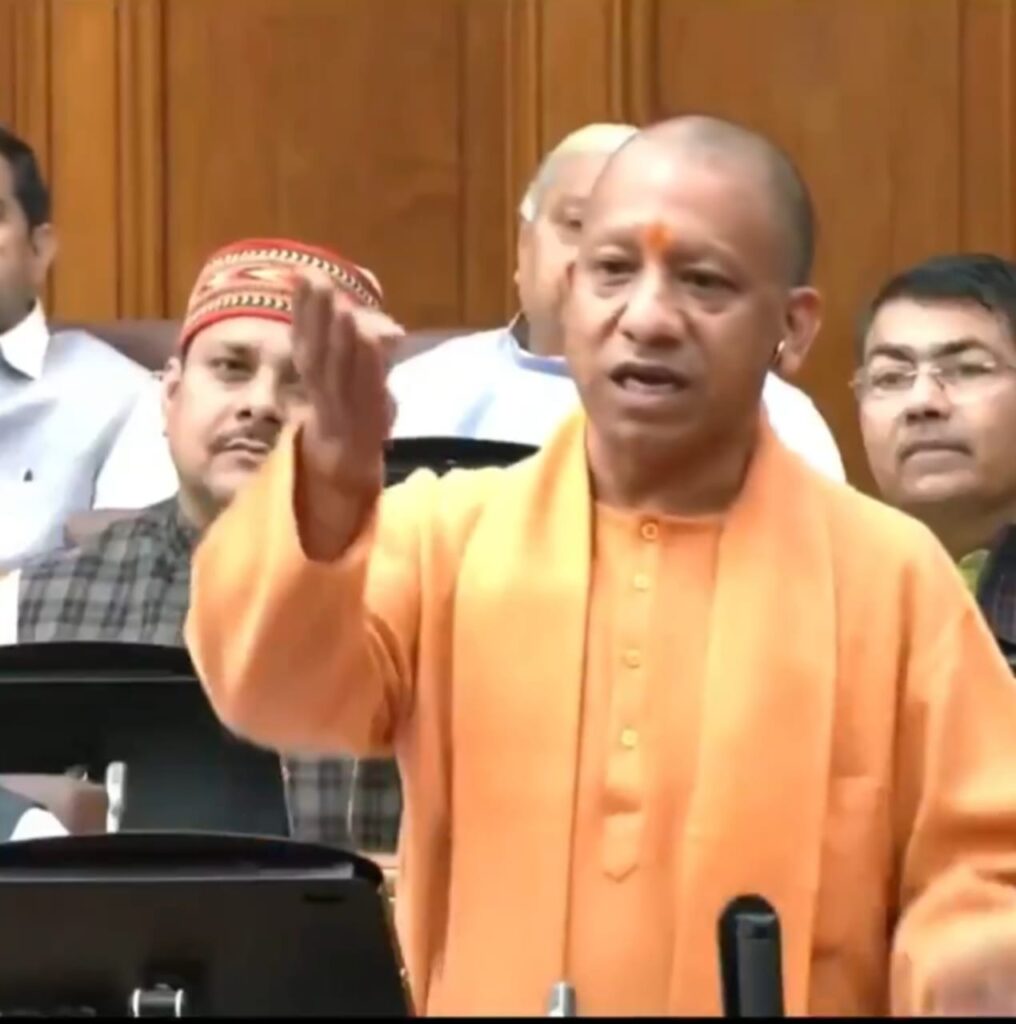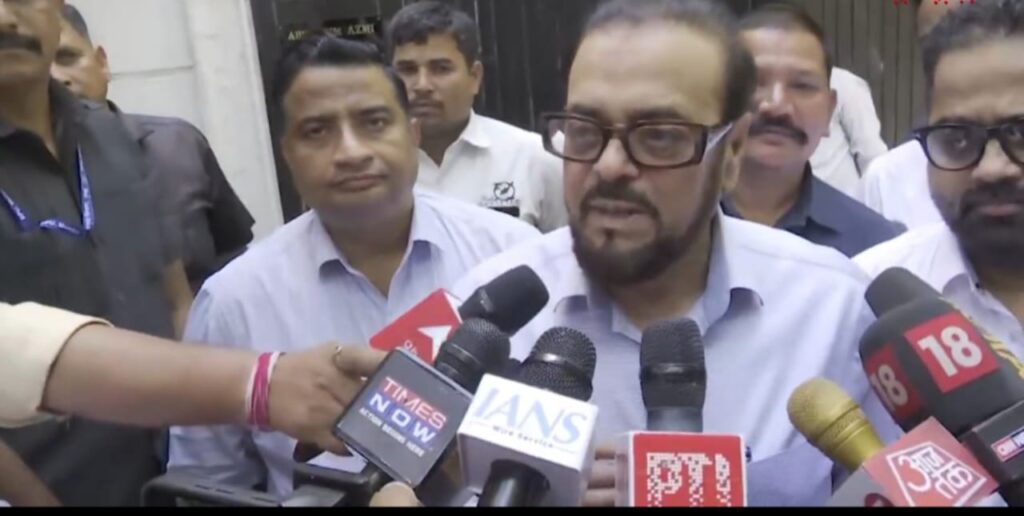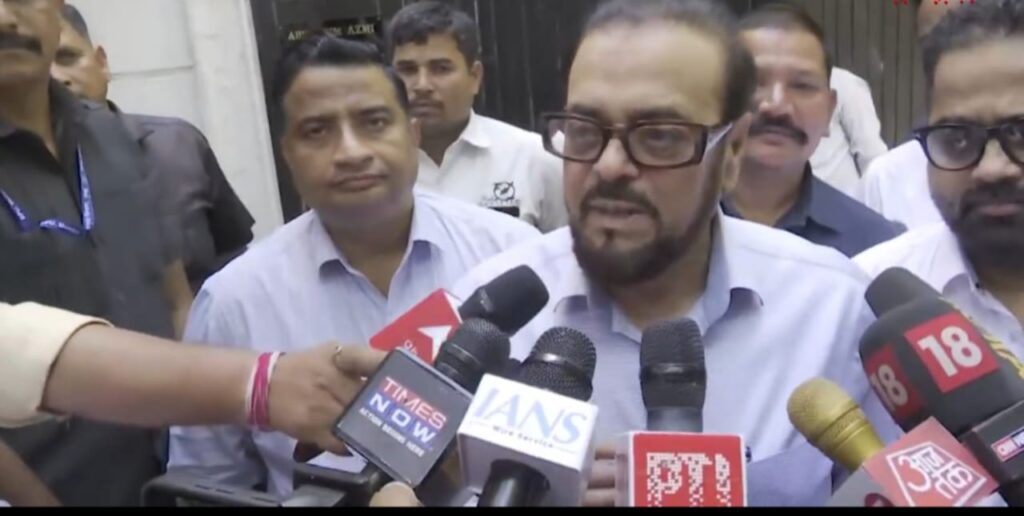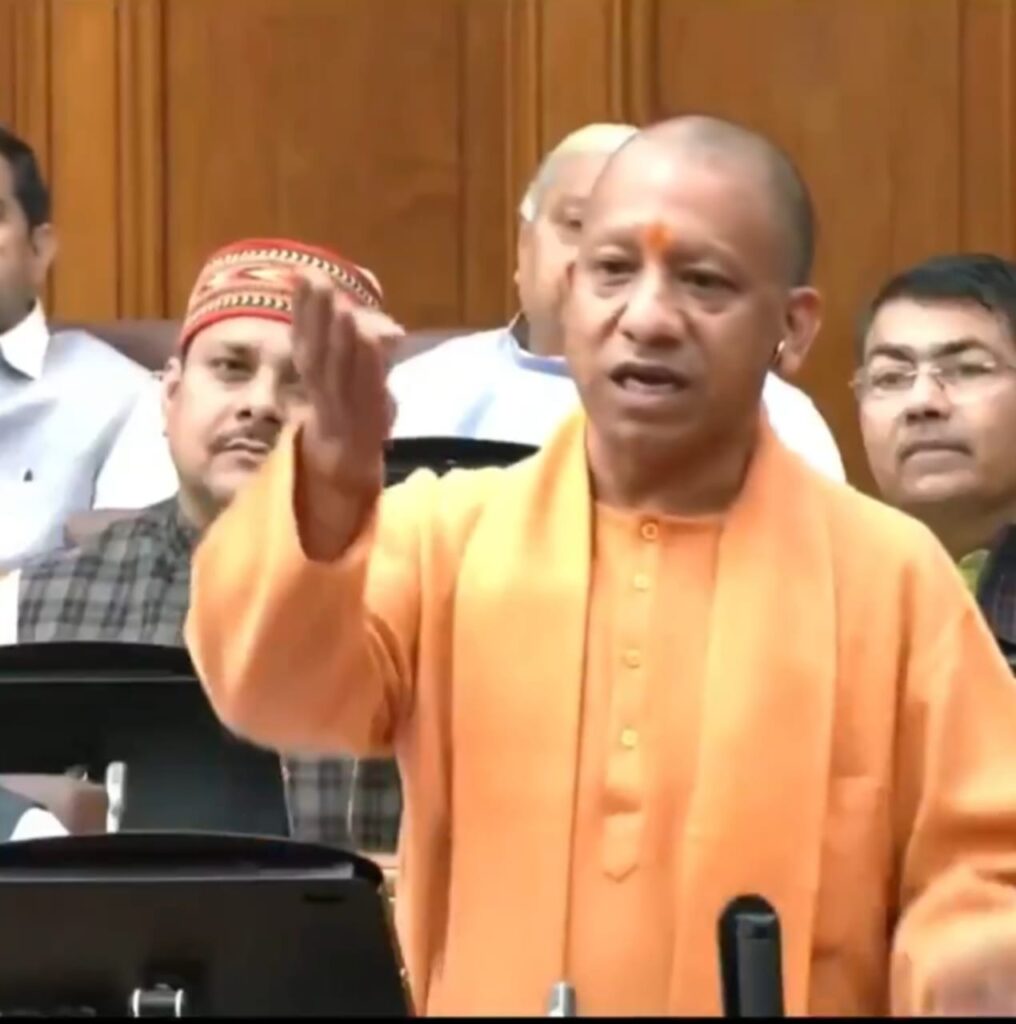Introduction
In a dramatic turn of events, Samajwadi Party leader Abu Azmi was suspended from the Maharashtra Legislative Assembly on [insert date] following controversial remarks about Mughal emperor Aurangzeb.
The decision, backed by the ruling MahaYuti coalition (BJP, Shiv Sena, and NCP), has ignited a fierce debate over free speech, historical interpretation, and political vendettas. Azmi, a firebrand politician known for his outspoken views, has labeled the suspension “undemocratic” and a “betrayal of justice.
” This article delves into the incident’s details, its historical and political implications, and the broader discourse it has sparked.

Section 1: The Controversial Remarks and Immediate Fallout
On [date], during a heated debate in the Maharashtra Assembly about renaming public spaces linked to Mughal rulers, Abu Azmi reportedly praised Aurangzeb as a “national hero” who upheld “justice for all communities.”
His remarks drew instant backlash from BJP and Shiv Sena legislators, who accused him of glorifying a “tyrant” responsible for atrocities against Hindus.
Points:
- Abu Azmi exact statement: “Aurangzeb’s reign was marked by fairness to farmers and the poor, irrespective of religion.”
- BJP’s counterargument: Aurangzeb’s policies, including the jizya tax and temple destruction, make him a polarizing figure.
- Motion for suspension: Proposed by [MLA name], alleging Abu Azmi comments “hurt Hindu sentiments” and violated legislative decorum.
The ruling coalition voted overwhelmingly to suspend Azmi for the remainder of the Assembly session, citing “breach of privilege.”

Section 2: Abu Azmi’s Defense: “Historical Truth vs. Political Vendetta”
In an exclusive interview post-suspension, Azmi doubled down on his remarks, accusing the BJP of “distorting history” to fuel communal divisions.
“Aurangzeb’s reign lasted 49 years—can a tyrant rule so long without public support?” he argued. He also highlighted Aurangzeb’s administrative reforms, such as land grants to farmers.
Azmi’s Key Arguments:
- History must be viewed holistically, not through a communal lens.”
- “My suspension is retaliation for opposing the government’s agenda to erase Islamic contributions to India.”
- “Why are Shivaji Maharaj’s enemies like Afzal Khan not scrutinized similarly?”
Critics, however, argue that Azmi’s defense ignores documented accounts of Aurangzeb’s religious intolerance.

Section 3: Historical Context: Aurangzeb’s Legacy in Modern Politics
Aurangzeb remains one of India’s most divisive historical figures. While some academics credit him with expanding the Mughal Empire and implementing robust revenue systems, others condemn his policies against non-Muslims.
Historical Debates:
- Temple Destruction: Over 60 temples, including Kashi Vishwanath, were demolished under his orders.
- Jizya Tax: Reintroduced in 1679, burdening non-Muslims.
- Administrative Reforms: Centralized governance, agrarian support, and a vast legal code.
Political Weaponization:
- The BJP and allies frequently invoke Aurangzeb to critique “appeasement politics” and justify renaming initiatives (e.g., Aurangabad to Chhatrapati Sambhaji Nagar).
- Opposition parties accuse the BJP of cherry-picking history to stoke majoritarianism.
Section 4: Legal and Procedural Aspects of the Suspension
Azmi’s suspension hinges on Maharashtra Assembly Rule 114, which permits disciplinary action against members for “unparliamentary conduct.” Legal experts, however, question whether historical debates qualify as “breach of privilege.”
Arguments For Suspension:
- Azmi’s remarks allegedly inflamed communal tensions, disrupting Assembly proceedings.
- Precedent: In 2023, [MLA name] was suspended for derogatory comments against [community]
Arguments Against Suspension:
- Freedom of speech: Legislators must be allowed to express historical opinions without censorship.
- Selective enforcement: No action against BJP MLAs for inflammatory statements in the past.
Section 5: Public and Political Reactions
The suspension has polarized public opinion:
- Supporters of Azmi: Social media trends like #IStandWithAbuAzmi accuse the BJP of authoritarianism.
- Critics: #AurangzebTyrant trends, with users sharing historical accounts of temple destruction.
Political Reactions:
- Samajwadi Party: “This is an attack on secular voices. We’ll protest across Maharashtra.”
- BJP: “Azmi’s remarks insult Hindu pride. The suspension upholds legislative dignity.”
- Congress: “The BJP is using history to divert attention from unemployment and inflation.”

Section 6: Broader Implications for Indian Politics
Communal polarization, historical revisionism, free speech in legislature
This incident underscores two critical trends:
- Historical Revisionism: Politicians increasingly weaponize history to consolidate voter bases.
- Erosion of Legislative Debate: Growing intolerance for dissenting views in state assemblies.
Conclusion: A Battle Over History and Identity
Abu Azmi’s suspension transcends a mere legislative dispute—it reflects India’s intensifying culture wars.
As political parties clash over historical narratives, the incident raises urgent questions about censorship, secularism, and democratic discourse.
With Maharashtra poised for elections in 2024, the Aurangzeb row could deepen communal fault lines, shaping the state’s political future.
Call to Action: Share your views on Abu Azmi’s suspension in the comments. Was it a justified move or an attack on free speech?
Q1: Why was Abu Azmi suspended?
A1: For praising Aurangzeb during a debate, which ruling coalition members deemed “anti-Hindu.”
Q2: How long is the suspension?
A2: For the remainder of the Assembly session (until [date]).
Q3: Has Azmi apologized?
A3: No. He maintains his remarks were historically accurate.
Q4: What’s next for Azmi?
A4: Legal challenges are unlikely, but the SP plans statewide protests.


